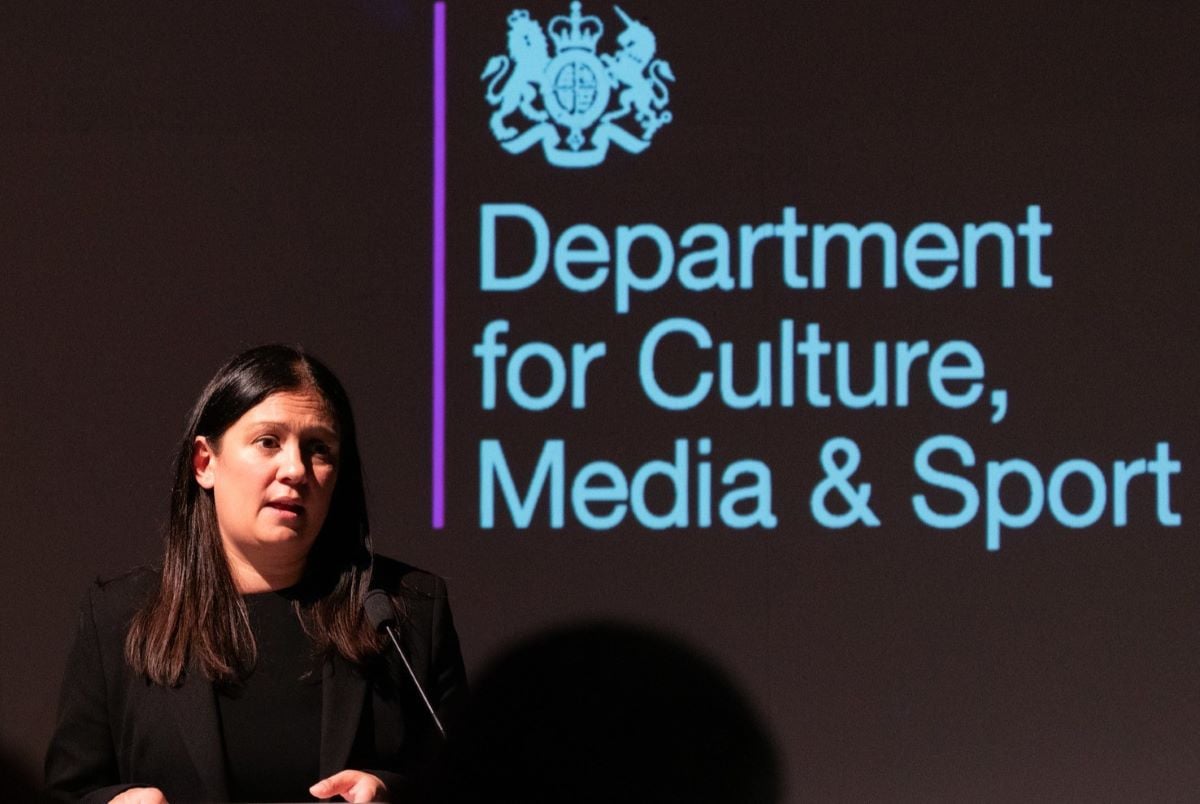
A full review of Arts Council England had been due to take place this year having been initiated by the previous Conservative government
Photo: DCMS
Government delays planned review of Arts Council England
Culture Secretary Lisa Nandy says study into the funding environment for arts and culture organisations will be conducted before any review of Arts Council England takes place.
Government plans to review the performance and remit of Arts Council England have been "paused" in favour of a wider examination of arts funding, it has emerged.
A commitment to a review of the public funding body featured in the Labour Party's creative industries manifesto published in March, but Culture Secretary Lisa Nandy indicated this week that it is now being placed on the back burner.
Speaking in an interview with the Financial Times, Nandy said a wider review of all arts and creative industries funding will take place instead to identify areas of the UK that are missing out.
READ MORE:
According to the article, Nandy is concerned that too much of government arts funding is spent in parts of the country where there is already access to other funds.
“I have asked for a map of the funding landscape of arts in the UK,” she said.
“We know that there are funding deserts where people just aren’t able to access arts and culture at all. The first step is to scope out the actual problem, and then the Arts Council review will start in the context of that.”
The Department for Culture Media and Sport (DCMS) declined to comment on the government's plans but has said that ministers are "considering next steps" and "further details will be announced in due course".
A full review of Arts Council England had been due to take place this year having been initiated by the previous Conservative government as part of the public bodies review programme.
Former Chair of the Science Museum Dame Mary Archer was appointed to lead the review in March, but the process was halted in June due to the general election. DCMS stated at the time that a decision on whether to continue would be in the hands of the next government.
News of the study into the funding environment for arts and culture organisations comes as they continue to contend with falling income and rising costs.
An investigation by Arts Professional in partnership with financial benchmarking company MyCake, published in June, found that finances of arts and culture organisations in the UK are in their worst state than at any time in the past five years.
'Sustainable footing'
Trevor MacFarlane, Director of Culture Commons, said a "root and branch review" of the UK’s funding landscape is "sorely needed".
"The Secretary of State clearly understands that the precarity of the UK’s creative, cultural and heritage sectors isn’t predicated on one organisation alone," he said.
"Despite austerity policies imposed on them over the last 15 years, local councils are still the biggest investors in the cultural life of the nation, and the creative industries are some of the fastest growing parts of the UK economy – they both need to be at the table as part of any review if we’re to help get the ecosystem on more sustainable and equitable footing.
"Lisa Nandy clearly sees a much bigger opportunity here to move the dial on entrenched geographic disparity as a matter of social justice by taking a more holistic look at how places are being supported in the round.
"We welcome this fundamental shift in approach and I’m sure the sectors stand ready to work with a new UK Government in a more collaborative way to help them deliver on the five new national missions the Prime Minister has set out.”
'Rebalancing arts funding'
Nandy also told the Financial Times that she intends continue the previous Conservative government's stated goal of rebalancing arts funding towards more deprived areas outside London.
“My first engagement with the Arts Council was around precisely this," she said. "I think they understand the importance of it and they understand that there’s far more to do.”
She added that plans to introduce a new “right to buy” for community assets, outlined in the King’s Speech in July, will make it easier for people to purchase empty heritage assets and convert them into cultural venues, with the government providing "seed funding" to help them do it.
Join the Discussion
You must be logged in to post a comment.